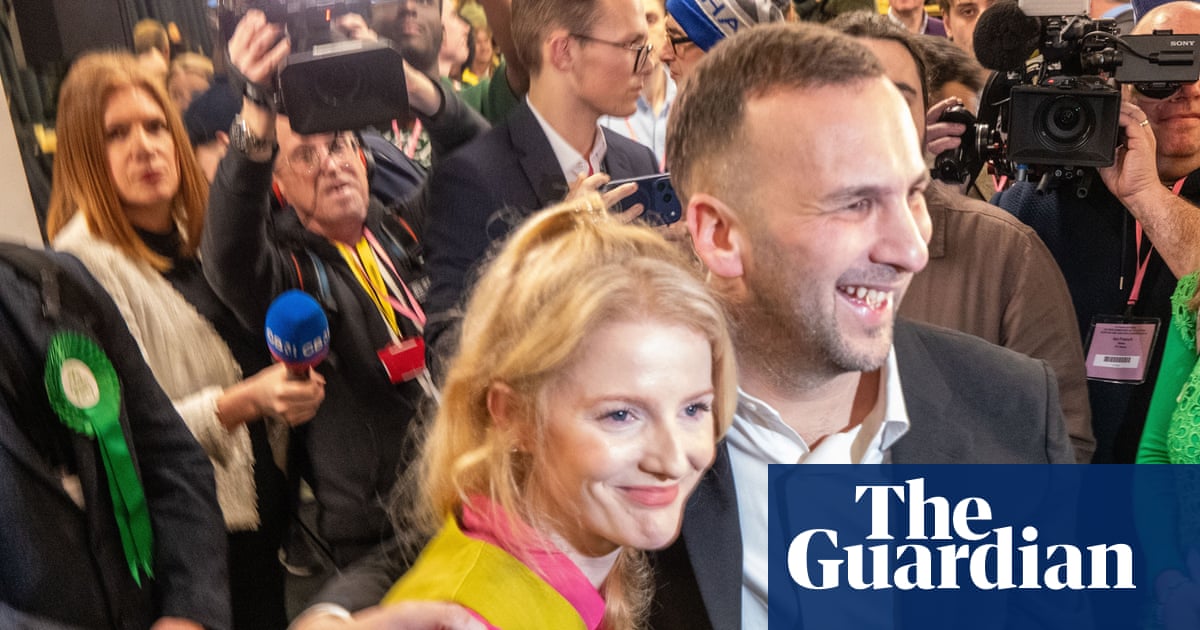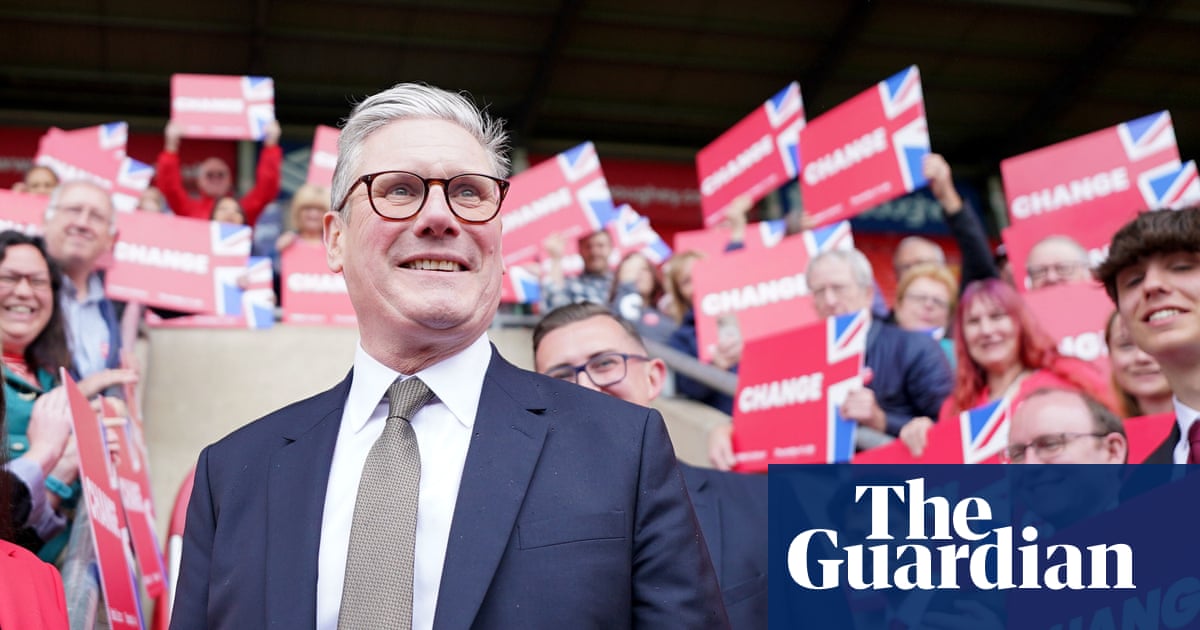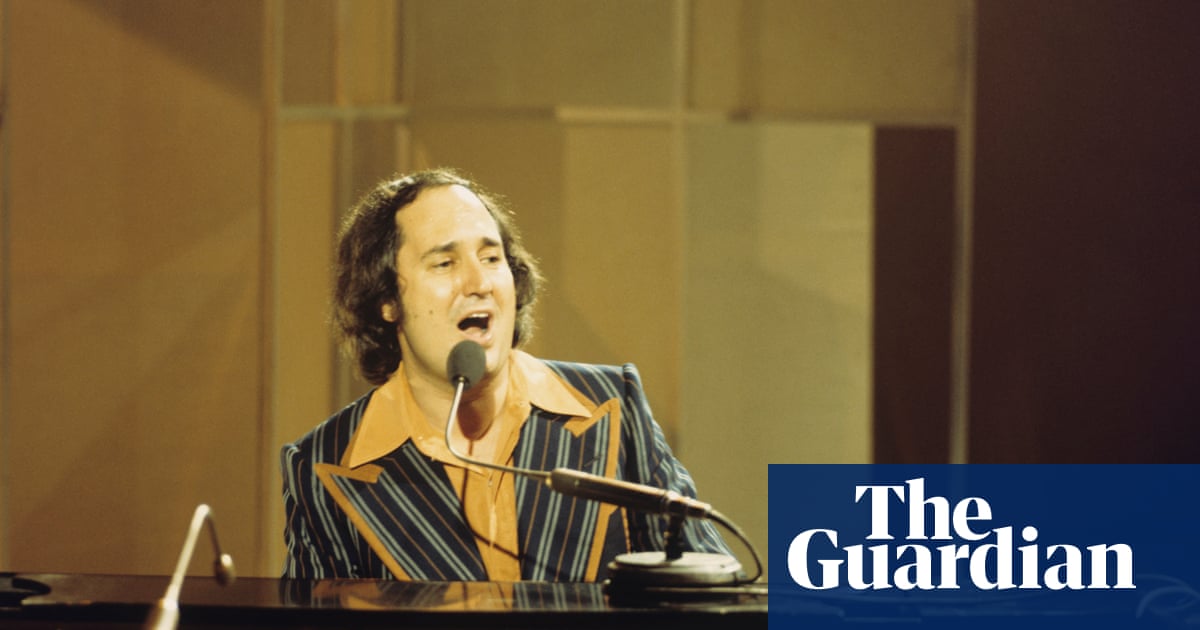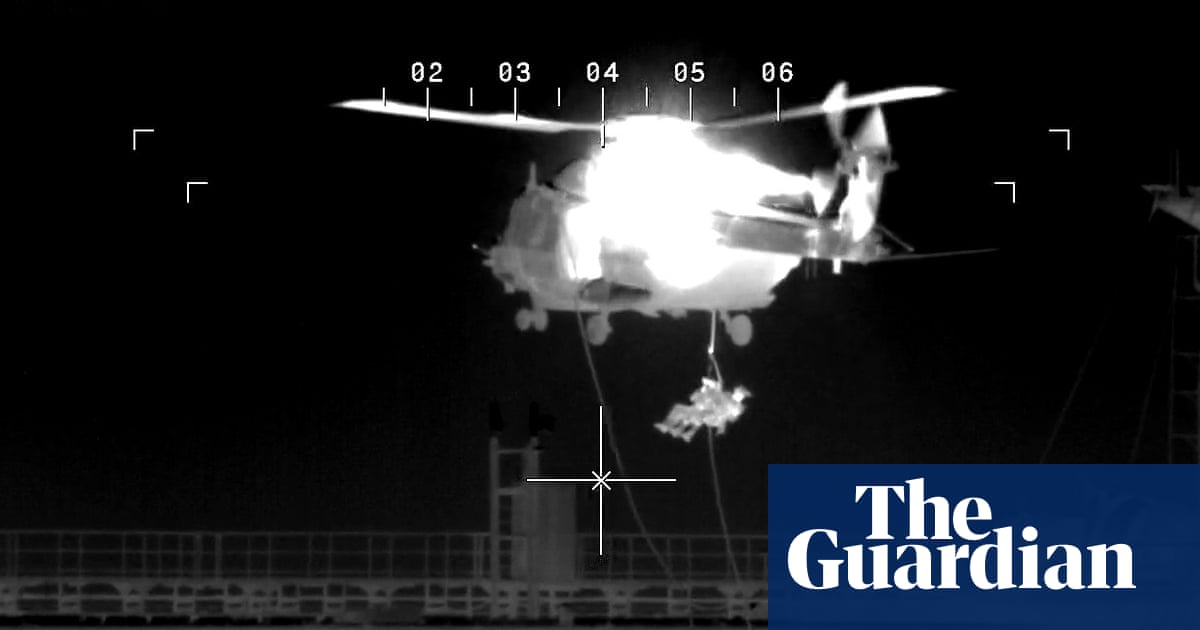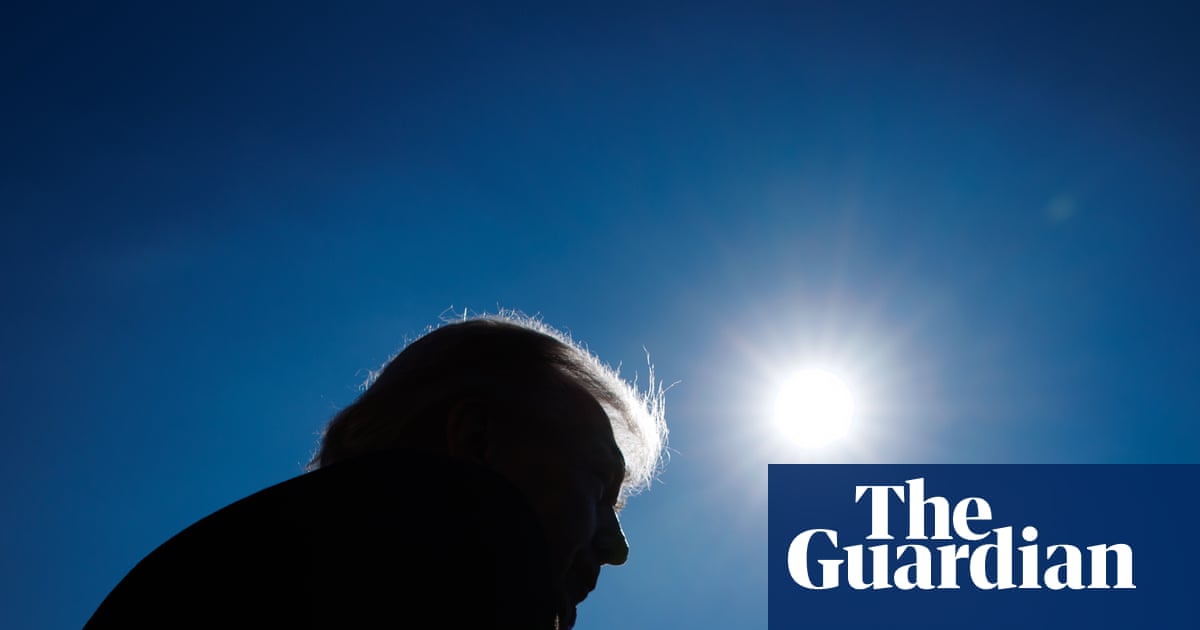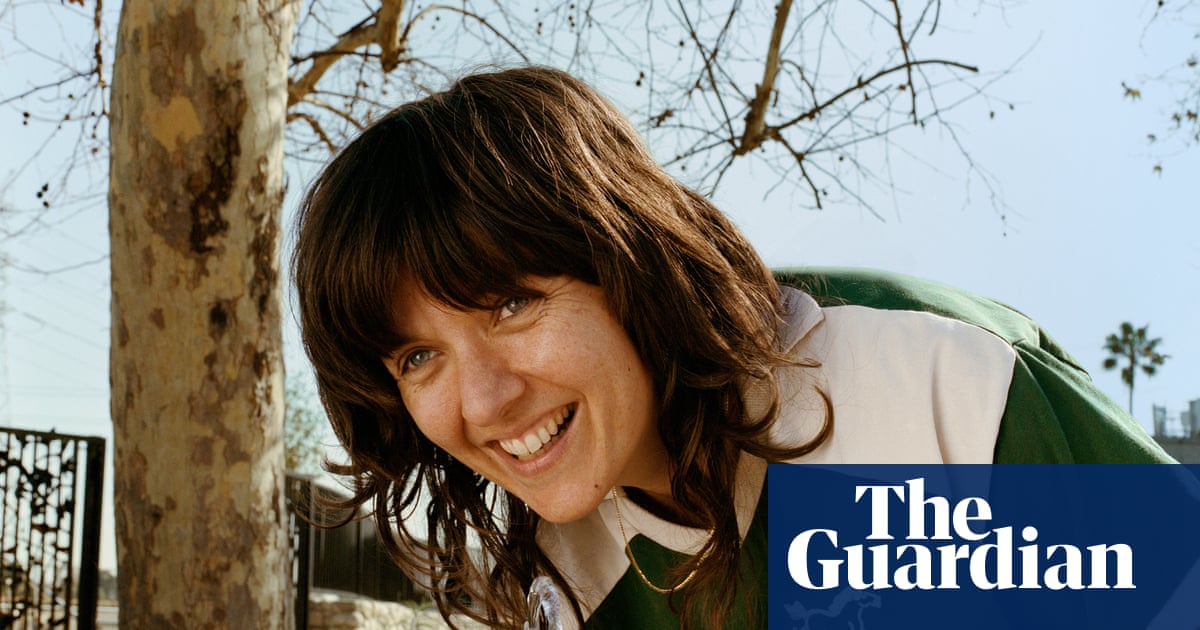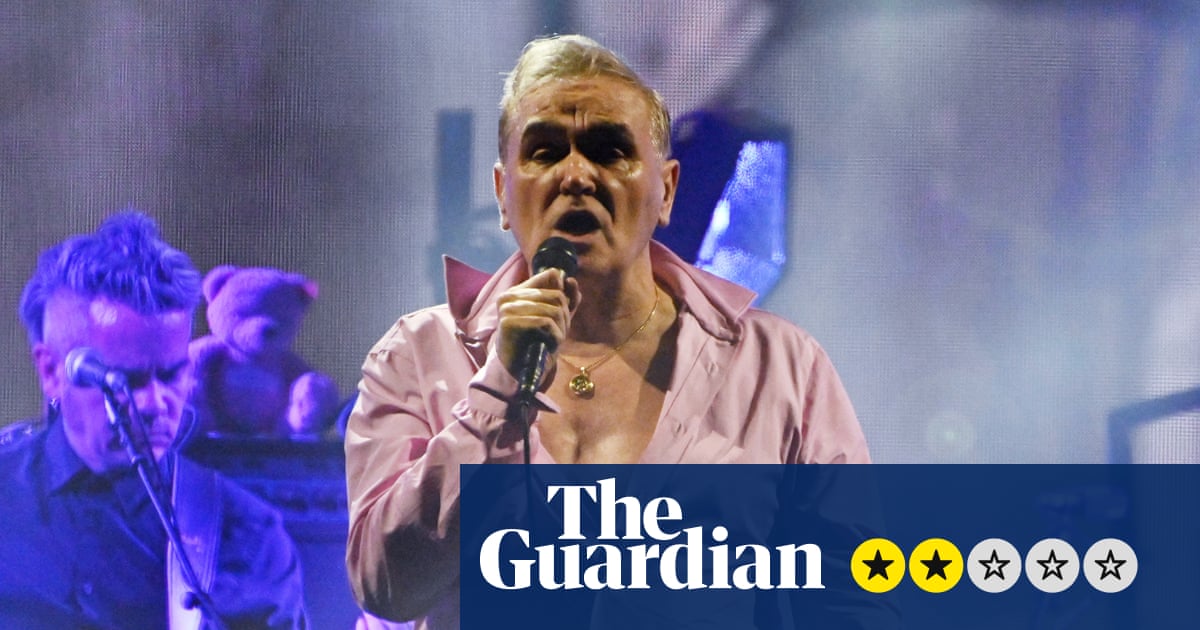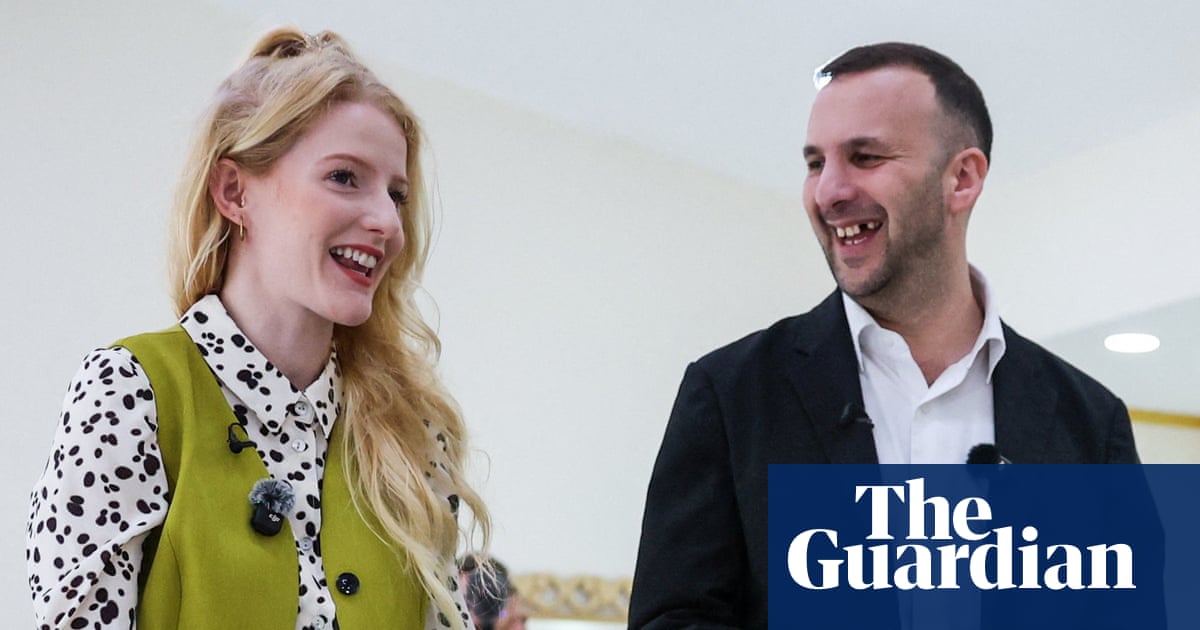In Ukraine, sound carries a different weight: the cautionary blurt of sirens, Shahed drones humming overhead, the concussive thwack of air defence interception and the subsequent explosion. But as well as the sounds of war, which continue three and a half years into Russia’s full-scale invasion, music still plays, clubs remain open during the day (closing well before the midnight curfew), and electronic dance music remains an intrinsic part of many Ukrainian lives.
Kyiv’s iconic clubs, such as K41, became bomb shelters before transforming into frontline fundraisers. Parties doubling up as cleanup operations are held at strike sites. New venues such as Abo Records – the first of many creative spaces to set up shop in an abandoned liquor factory – have emerged as gathering points where you might share a cigarette with a sniper or combat medic as easily as with a DJ. But the rehabilitative power of dance music is most evident at the Superhumans centre, near Lviv in the west of Ukraine. Here, the most critically war-wounded are treated with prosthetics and reconstructive surgery, and psychological support is given to children and adults affected by the war. And within the range of treatment is music therapy.
Howard Buffett, the son of Warren Buffett and one of the centre’s chief funders, suggested forming a Superhumans band, so the centre teamed up with music charity Victory Beats, which was set up one year into the war to provide veterans with relaxation and a nonverbal outlet for emotional expression.
“We were working with a 25-year-old soldier with severe brain damage and limited use of his hand,” the charity’s founder, Volodymyr Negodada, remembers. “We started with a [sound-based] relaxation session designed to calm the nervous system, but stopped almost immediately because the low frequency triggered pain. When he started to feel better, he asked for a DJ console.”
Having witnessed the efficacy of electronic music as therapy firsthand, Negodada and Vlad Fisun – a DJ and former editor-in-chief of Playboy Ukraine – partnered to create the EnterDJ programme, which teaches veterans the basics of mixing. All that users require is a laptop, headphones and an internet connection; some tune in from home, others show up to a dedicated space in the Superhumans centre. “Immersed completely in the process, playing track by track without paying attention to low or high frequencies, the soldier started to use his injured hand,” Negodada says. The patient remained with EnterDJ for the duration of his stay at Superhumans, and Negodada saw him perform a DJ set a year later: “He still has health issues but remains passionate about DJing.”
Speaking with the same stoicism that underpins most of my conversations with Ukrainians, another veteran, Oleksandr, tells me about the incident that led him to Superhumans and EnterDJ. “I was serving in Poltava when a missile destroyed my leg,” he says. “I remember everything about it. The blast, phoning my commander to say I was alive, realising I’d have to drive an automatic car, worrying about the blood in my car after the evacuation.” He laughs at the absurdity, and continues. “In hospital, I lost nearly all my blood and had to be resuscitated. I woke up knowing my leg was gone, but thankful the rest of my body and brain were OK. That’s most important.”
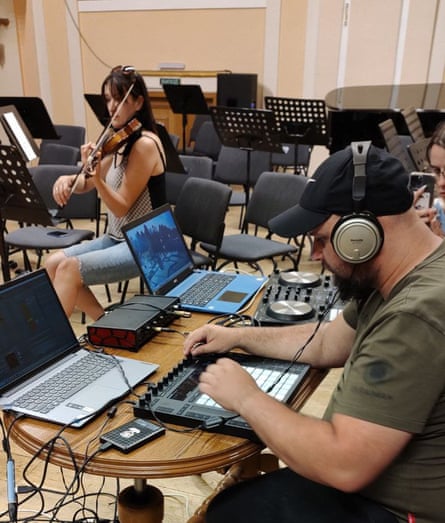
For Oleksandr, EnterDJ became a daily routine, “to get some good moments if the day was hard, or to celebrate if I gained something in rehabilitation”. Within six months, he was performing alongside the Lviv Philharmonic Orchestra, using a Midi controller to layer sounds over a composition written with British composer Nigel Osborne.
Oleksandr had started off using singing bowls in a sound therapy session. “Then I saw the DJ console and it reminded me of my school days, trying to mix music on a laptop.” Before being fitted with a prosthetic leg, EnterDJ “helped distract me from the trauma and rehabbing”, he says, holding his kind gaze steady. “I now listen more deeply, breaking music into parts for mixing, and even composing. We have composed ambient music for therapeutic purposes; I added electronic effects to live classical instruments. The audience relaxed deeply; some even fell asleep. So we met our goal!” Most recently, Oleksandr played for Prince Harry on a visit to Kyiv.
EnterDJ’s students are encouraged to find their own DJ style. They are able to pull tracks from a catalogue of music donated by record labels across the world, including Lyon’s Hard Fist, Sao Paulo’s Tropicana, and Lisbon’s Disco Extendes, as well as Ukrainian labels such as Mystictrax, 2064, Regulardisco, and Trance Pandemic.
Roman Cherkas, who served in the Third Tank brigade in eastern Ukraine, has gravitated towards drum’n’bass. He joined the EnterDJ programme after months of surgeries, prosthetics and rehabilitation at the centre, after losing both of his lower limbs in a mortar strike. He speaks to me on a call from his home, ready with a drum’n’bass mix. “Right now, I still don’t feel mobile, I can’t move around normally. Music has become energy for me, life energy,” he says. “If I go two days without listening or playing, that’s when the phantom pains, bad thoughts, and even depression start. For me, music is a normal task, my remedy.”
After six months in the programme, Roman performed in Lviv at a showcase by one of the world’s leading drum’n’bass labels, Hospital Records. He speaks slowly and thoughtfully about how music shifts his headspace. He becomes completely absorbed by it, sometimes sitting in his chair mixing for six-hour stretches. “I tried working with psychologists but it didn’t work for me. You have to consciously switch your brain on and imagine lifting your legs, which is very difficult. With music, it’s the opposite, it switches my mind automatically and makes me feel better.”
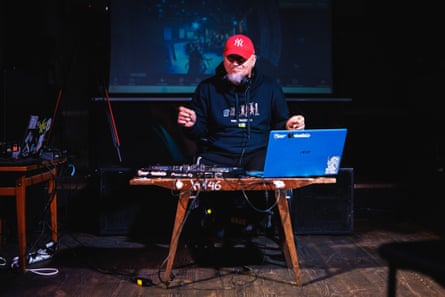
Olga Rudneva, chief executive of Superhumans, is proud of how veterans who pass through Superhumans are performing on big stages, but underlines what she finds most important about the program: “Positive healing effects for patients; reduced phantom pain; positive mood and more socialisation.”
However, the EnterDJ programme is used not just by injured veterans but by children and adults across Ukraine, and its creators highlight its broader power. Chief executive Yevhen Skrypnyk introduced techno to his hometown of Sloviansk in eastern Donbas with Shum Rave (“shum” meaning noise in Ukrainian), a party with the purpose to rebuild the city and its culture after liberation from Russian occupation back in 2014. “We all grew up too early,” he says. “We know what it means for a friend to die in the war, or what it means to wait for your friend in captivity. I’ve been in the events industry for more than 10 years, but it was never just about the party; it’s about how we could connect people and destroy stereotypes. In Ukraine, we are fighting for our lives, and for our culture.”
Andreas Borsch, who co-hosts EnterDJ events in his venues across Kyiv, agrees, saying that music and culture are the best means Ukraine has to fight against Russian propaganda. “It’s an international language, it can be understood everywhere, by everyone. You can try and convince people of everything that’s happening here, but it’s hard to touch them in a big way because they’re so far away and it can be difficult to understand. But with music, you can pass on greatness.”

.png) 3 months ago
79
3 months ago
79


